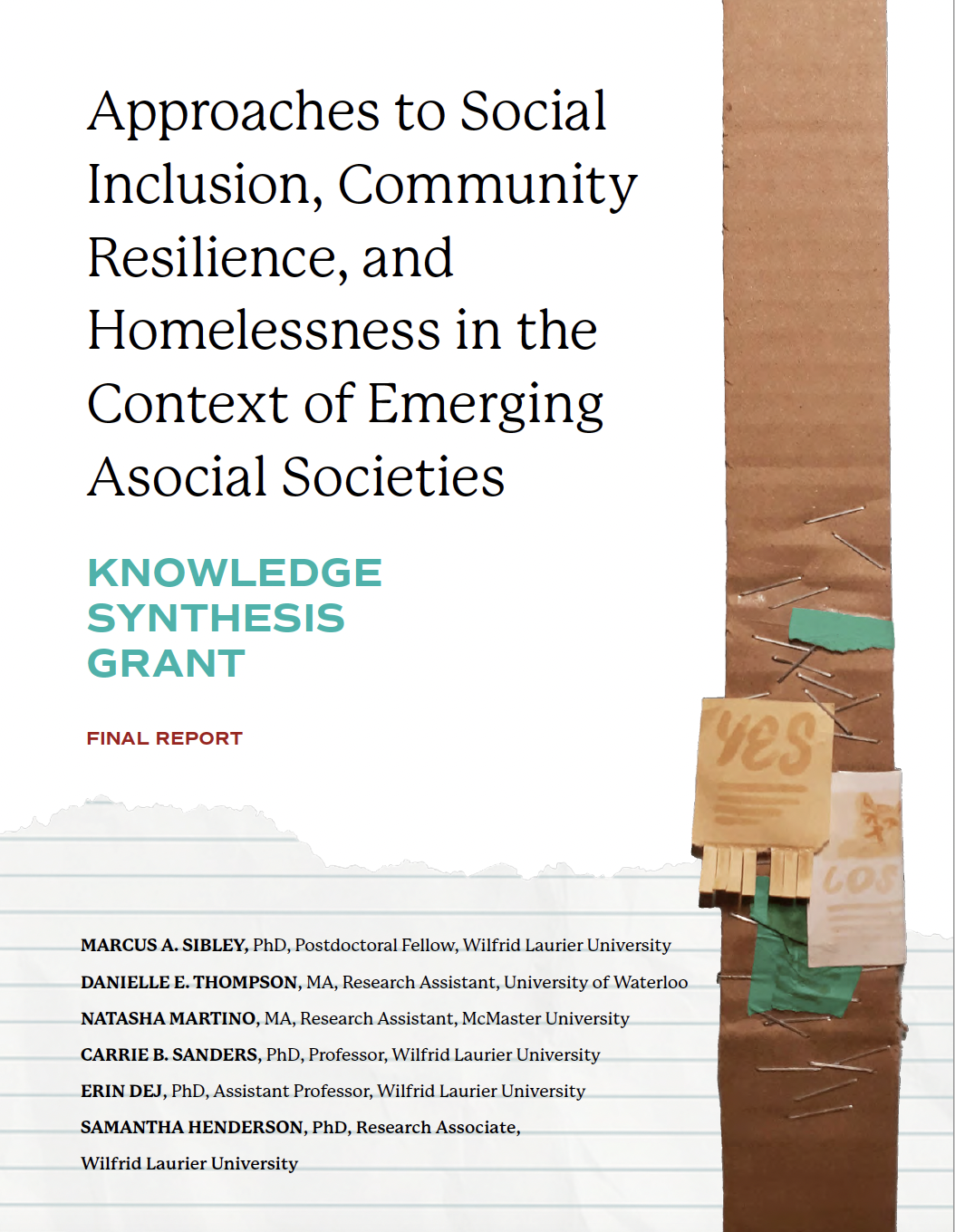Over the last decade, Canada has made significant leaps in its effort to prevent and end homelessness, situating homelessness as a predominantly structural problem rather than one of individual failings (e.g., Housing First model) (Goering & Streiner, 2015; A. Smith, 2022). However, less focus has been placed on the social inclusion of people experiencing homelessness. Perceptions of and responses to homelessness are deeply contentious and can have a negative impact on community pride, sense of belonging, and the ability of people from different social locations within the community to get along (Kulig et al., 2013). Ultimately, these tensions undermine the ability of communities to adopt a community resilience approach that calls for a collective responsibility framework to address stressors and adapt in the face of adversity.
This literature review fills two significant gaps. First, it offers a meaningful synthesis of the existing literature on NIMBYism and YIMBYism that allows us to highlight the pragmatic ways communities fight against social exclusion and isolation. Second, it identifies key literature gaps and offers a comprehensive summary of strategies that address social exclusion and promote community resilience. Our scoping literature review sought to synthesize peer-reviewed academic literature contributions as well as grey literatures in the following three areas related to homelessness: (1) NIMBY discourses, narratives, and policies, (2) YIMBY and social inclusion discourses, narratives, and policies, and (3) current practices, iterations, and conceptual contributions related to community resilience.

